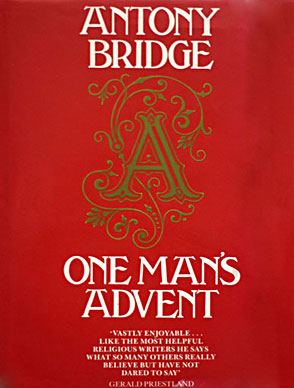
BBC World Service Talk
B.B.C. World Service December, 1985
Talk 2.
When I spoke before, I tried to describe why I became an atheist as a young man. I remained such for a good many years, but seeds of doubt in some of the certainties which went with my atheism were sown during the second world war. I was 25 when it broke out, and I spent six years in the army, three of them in the Middle East. During that time, I saw many of my friends die and others killed in battle and in the bombing, and I heard tell of the horrors of Belsen, Buchenwald and the other concentration camps. After that, it was difficult to go on believing, as I had before the war, that if only mankind would get rid of the old religious superstitions about a non-existent God and take charge of his own destiny, he would usher in a paradise on earth. The war forced me to doubt whether man was any better at managing his own affairs than God had been. I still didn’t believe in God, but now I began to disbelieve in man too. Plainly, he was not the basically good creature, which optimistic humanists like me had always belied. But I could not believe either that man was a mere random assembly of atoms of no value or significance; a mere by-product of the chancy physics of a speck of planetary matter circulating round one ordinary star out of 100,000 million in the Milky Way, itself only one galaxy out of 100 million, which was the logical belief of my through-going atheism. I might accept the abstract proposition that I and all other human beings were no more than that, but I could not behave as if it were true; and this was brought home to me most forcibly just after the war by a casual meeting with a German.
He had been an atheist like me, but when I met him, he was a Lutheran Pastor, and I asked him what on earth had made him change his mind. He had fought in Russia during the warm, and after a time he had been given a staff job. In 1943 or ‘44 when the Germans were retreating, he had been sent on an errand, and at midday some miles west of the town of Kiev, where a battle was raging, he had decided to have lunch. Sitting in his Volkswagen beside the road – a long ribbon of road across the endless Russian plain. As he ate some sandwiches, he noticed a small column of sorry looking people approaching from the East accompanied by a small guard of SS men armed with sub-machine-guns. He paid little attention to them, and only later discovered that they were Jews being taken west to an extermination camp before the advancing Russians could rescue them. One young woman had fallen 50 yards or so behind the main body, and she had done so because she was exhausted; she was in the last stages of pregnancy, carrying an infant in her arms, and dragging a child of about eight by the hand. My acquaintance noticed one of the guards wait behind to encourage her to keep up with the rest, and was horrified to see that the way he did so was to knock her over the back of the neck with the butt of his gun, while screaming oaths at her. The young woman fell face down on to the road and began to vomit; when it became evident that despite a barrage of kicks to the stomach she would not be able to get up, the guard shot her and left her corpse on the road with the two children screaming and scrambling over it.
My acquaintance was brought up with a shock against a conviction over which he could no more argue that he could argue that he breathed that whatever else he had witnessed, it could not adequately be described in terms of the mere elimination of a chance biochemical accident of the earth’s random physics and nothing more. Somehow he had to make sense of his primary human awareness of the horror of that incident and the value of that dead woman. His atheism made no sense of either, so he had to rethink his whole understanding of life, as I did later for similar reasons; and he came to the conclusion that only if there was some sort of truth in the symbolic statement that ‘God so loved the world’, could the value of that dead Jewess be established with any kind of certainty because then she could be seen to be valued by the ground of all value and loved by the ground of all love. I had a long way to go before I came to much the same conclusion, but at least I was on my way.